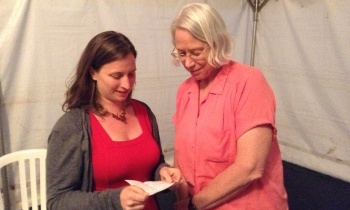Women in Prison

Women in prison have different backgrounds, problems and needs from male prisoners. QUNO has worked on the rights of these women and their children since 2003 and participated in the drafting of the 2010 UN Rules for the Treatment of Women Prisoners and Non-custodial Measures for Women Offenders, known as the Bangkok Rules, which supplement the UN Standard Minimum Rules for the Treatment of Prisoners.
Prior to the development of the Bangkok Rules, which provide international standards on the treatment of women offenders, QUNO worked with other Quaker bodies (the Quaker representatives to the UN Commission on Crime Prevention and Criminal Justice, Quaker Peace & Social Witness of Britain Yearly Meeting (QPSW) and the Quaker Council on European Affairs) to produce detailed research on the specific problems faced by women in prison and pre-trial detention. These include:
- over-incarceration of women, particularly for minor offences carrying mandatory prison sentences;
- adverse impact of imprisonment on the children of imprisoned mothers, whether they reside in prison with their mothers or if they are separated from them;
- inappropriate accommodation and sanitary facilities;
- lack of appropriate staffing;
- lack of female prison staff or staff with appropriate knowledge and skills to work with women;
- lack of education and work programmes;
- high proportion of women prisoners with a history of mental, physical or sexual abuse;
- disproportionate representation of indigenous women, foreign nationals and women from minority groups in women's prisons.
QUNO works with a range of other organisations in this area, including with the World Health Organisation Europe Office's Health in Prisons Project to develop a background paper and declaration on Women's Health in Prison (published jointly in 2009 by WHO Europe and UNODC), and through making submissions to relevant UN human rights bodies.



